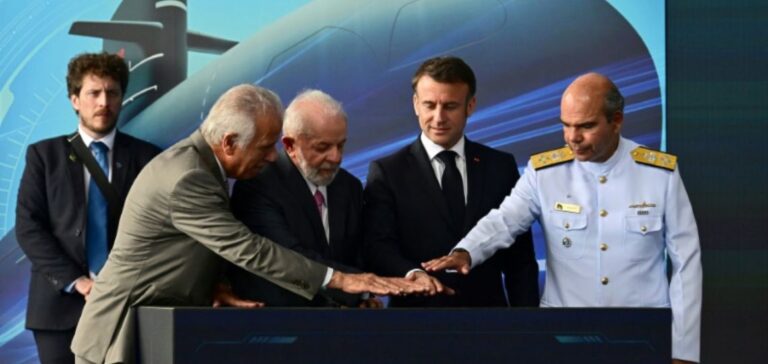In Itaguaí, Macron clearly expressed France’s support for the development of Brazilian submarines, opening the door to innovation with nuclear propulsion. “I would like us to open the chapter for new submarines, the fourth, the fifth, but (…) that we look nuclear propulsion in the face,” he asserts. The statement came during the launch ceremony of a conventionally-powered Franco-Brazilian submarine, a tangible sign of the long-standing collaboration between the two nations.
Brazil’s quest for nuclear technology
Brazil’s request for a nuclear technology transfer is emphasized by Lula, who assures us that Brazil’s nuclear ambitions are aimed at peaceful objectives. “If Brazil wants to have access to knowledge of nuclear technology, it’s not to wage war. We want this knowledge to assure all countries that want peace that Brazil will be at their side,” Lula emphasized. This request for specific technological collaboration is part of Brasilia’s desire to integrate nuclear propulsion into its submarines, with the purchase of related equipment from France.
Milestones in sustainable cooperation
The launch of Tonelero, the third Scorpene-class submarine, marks a key milestone in the partnership between France and Brazil, initiated in 2008. The partnership includes the construction of four conventionally-powered submarines, as well as enabling Brazil to design its first nuclear attack submarine, the Alvaro Alberto, with Naval Group providing technical assistance for the design, with the exception of the nuclear part.
Challenges and opportunities
Despite the project’s delays, the commitment of both countries remains strong. The development of Brazil’s nuclear submarine symbolizes Brasilia’s ambition to achieve strategic technological autonomy while strengthening its defense capabilities.
Cooperation in the field of nuclear propulsion represents a possible next step in Franco-Brazilian relations. This perspective opens up new horizons for collaboration in defense and technology, underlining the importance of international non-proliferation commitments.






















